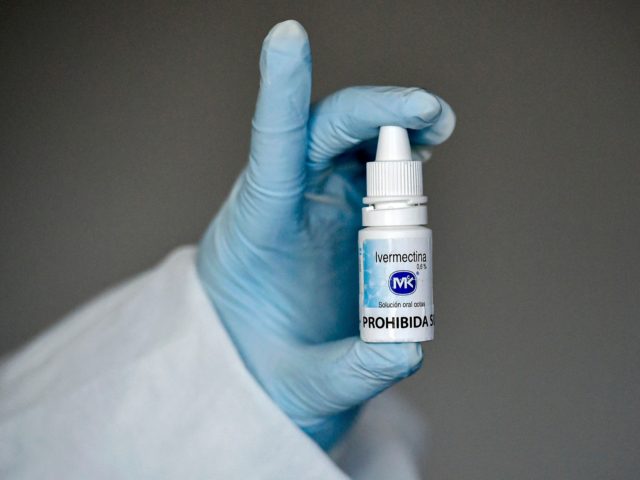Rolling Stone magazine ignited a firestorm of criticism this weekend after pushing a false report claiming ivermectin overdose patients were overwhelming Oklahoma hospitals.
In the original article, Rolling Stone cited testimonies from Dr. Jason McElyea, who told KFOR that overdoses of ivermectin – a popular and yet-t0-be proven alternative treatment for the coronavirus – were causing an overflow in rural Oklahoma hospitals.
“The ERs are so backed up that gunshot victims were having hard times getting to facilities where they can get definitive care and be treated,” McElyea said, as reported by Rolling Stone.
“All of their ambulances are stuck at the hospital waiting for a bed to open so they can take the patient in and they don’t have any, that’s it,” added McElyea. “If there’s no ambulance to take the call, there’s no ambulance to come to the call.”
McElyea said that overdose patients experienced such side effects as nausea, vomiting, muscle aches, cramping, and even blindness.
“The scariest one that I’ve heard of and seen is people coming in with vision loss,” the doctor told the outlet.
Multiple media outlets, from The Guardian to Rachel Maddow to the BBC, ran with the story, all of them proclaiming how medicine used to treat horses has threatened to crash Oklahoma’s healthcare system. Just one problem: the story was completely false.
According to the Northeastern Health System Sequoyah, a hospital McElyea was listed as being affiliated with, the doctor is not a current employee and there have been no patients “due to complications related to taking ivermectin.” Per a statement on the NHS Sequoyah’s website:
Although Dr. Jason McElyea is not an employee of NHS Sequoyah, he is affiliated with a medical staffing group that provides coverage for our emergency room.
With that said, Dr. McElyea has not worked at our Sallisaw location in over 2 months.
NHS Sequoyah has not treated any patients due to complications related to taking ivermectin. This includes not treating any patients for ivermectin overdose.
All patients who have visited our emergency room have received medical attention as appropriate. Our hospital has not had to turn away any patients seeking emergency care.
We want to reassure our community that our staff is working hard to provide quality healthcare to all patients. We appreciate the opportunity to clarify this issue and as always, we value our community’s support.
After significant blowback, Rolling Stone only updated the piece and issued a formal correction rather than retracting it entirely. The headline now reads, “One Hospital Denies Oklahoma Doctor’s Story of Ivermectin Overdoses Causing ER Delays for Gunshot Victims.”
Update: One hospital has denied Dr. Jason McElyea’s claim that ivermectin overdoses are causing emergency room backlogs and delays in medical care in rural Oklahoma, and Rolling Stone has been unable to independently verify any such cases as of the time of this update.
The National Poison Data System states there were 459 reported cases of ivermectin overdose in the United States in August. Oklahoma-specific ivermectin overdose figures are not available, but the count is unlikely to be a significant factor in hospital bed availability in a state that, per the CDC, currently has a 7-day average of 1,528 Covid-19 hospitalizations. The doctor is affiliated with a medical staffing group that serves multiple hospitals in Oklahoma. Following widespread publication of his statements, one hospital that the doctor’s group serves, NHS Sequoyah, said its ER has not treated any ivermectin overdoses and that it has not had to turn away anyone seeking care. This and other hospitals that the doctor’s group serves did not respond to requests for comment and the doctor has not responded to requests for further comment. We will update if we receive more information.
Later, it was revealed that the photo Rolling Stone used to illustrate an overflow of emergency room patients was actually from January at a church in Oklahoma City where residents waited in line to get the coronavirus vaccine.
Holy shift even the photo was fake pic.twitter.com/dOJw9D08Tn
— Jack Posobiec 🇺🇸 (@JackPosobiec) September 5, 2021
Rolling Stone previously settled a defamation suit in 2017 following the University of Virginia rape story hoax.

COMMENTS
Please let us know if you're having issues with commenting.